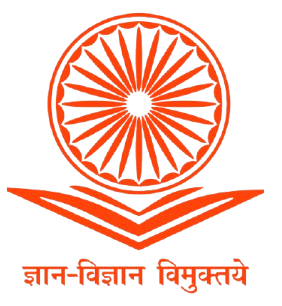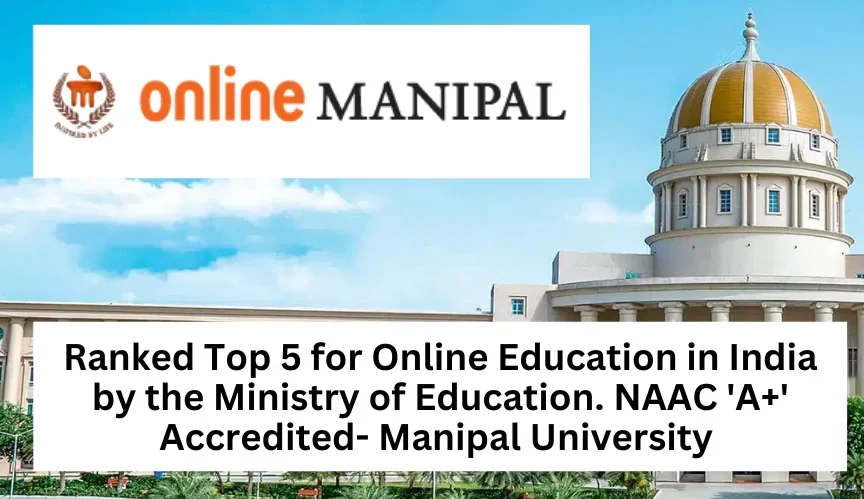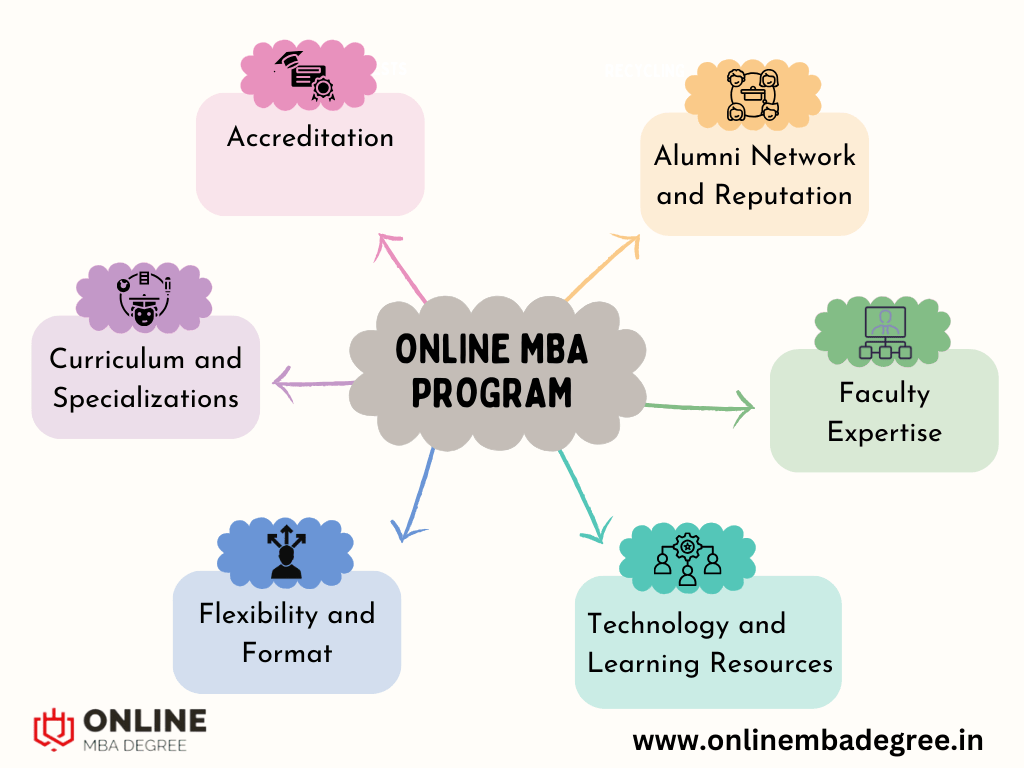UGC Announces Admissions in Two Academic Session 1st Batch(July/August) . 2nd Batch (January/February)
Get an Online MBA Degree by NAAC A++ Accredited Universities
Globally Recognised Universities
As per Govt. Online MBA Degree are Now Equivalent to Regular Degrees
Hurry Up! Admission Closing Soon. Only Few Seats Left. Enroll Now!
ODL & Online MBA Programs are Equivalent to Regular (Campus) Programs - To know more
UGC Announces Admissions in Two Academic Session 1st Batch(July/August) . 2nd Batch (January/February)
Get an Online MBA Degree by NAAC A++ Accredited Universities
Globally Recognised Universities
As per Govt. Online MBA Degree are Now Equivalent to Regular Degrees
Hurry Up! Admission Closing Soon. Only Few Seats Left. Enroll Now!
ODL & Online MBA Programs are Equivalent to Regular (Campus) Programs - To know more

Why Are IIT Ranked So Low in The World Ranking?
Why Are IIT Ranked So Low: The Indian Institutes of Technology (IITs) have received a lot of attention lately for their high caliber of instruction, productive research, and contributions to a range of disciplines. In contrast to their foreign peers, IITs frequently find themselves placed lower in worldwide MBA ranking, despite their prestigious reputation. This disparity calls into question both the real potential of IITs in the field of management education as well as the reasons influencing the rankings.
Why Are IIT Ranked So Low:
Global Experience and Student Diversity of IIT:

The Relevance of Student Diversity:
MBA students’ learning experiences and global perspectives are greatly enhanced by student diversity and exposure to other countries. However, when it comes to student diversity and exposure to other countries, Indian Institutes of Technology (IITs) sometimes fall short of highly regarded business schools. This is an examination of how the global ranking of IITs’ MBA programs is affected by student diversity and exposure to other countries:
Present Conditions at IIT:
- Restricted Enrollment of International Students:
- IITs have a smaller proportion of overseas students enrolling in their MBA programs than other highly regarded business institutions.
- A complete learning experience is hampered by the absence of variety in the student body, which inhibits cross-cultural relationships and the sharing of different points of view.
Similar Student Origins:
- Most students enrolling in IIT MBA programs have comparable educational and work experiences.
- Lack of diversity in the student body limits the learning process by preventing exposure to various cultural, social, and professional viewpoints.
Strategies to Enhance Student Diversity
Worldwide Student Selection:
- To draw in top talent from around the globe, IITs should aggressively recruit overseas students by providing financial aid, tuition exemptions, and other incentives.
- Participating in international student exchange programs and collaborating with foreign universities can help to enhance diversity on campus and enable student exchanges.
Development of Variety programs:
- To draw in students from a variety of academic, professional, and cultural backgrounds, IITs should put diversity programs into place.
- Promoting diversity and inclusion on campus may be aided by outreach initiatives, diversity scholarships, and focused recruiting campaigns.
The Worth of Worldwide Experience
Global Perspective:
- MBA students see business possibilities and problems from a global perspective thanks to exposure to foreign students, faculty, and curriculum.
- Exposure to other cultures improves one’s capacity to communicate across cultural boundaries, adapt, and have a deeper comprehension of global business processes.
Potential for Socializing:
- MBA students’ professional networks are widened through interactions with teachers and students from various backgrounds.
- Global exposure makes it easier to network with alumni, business executives, and think leaders from across the globe.
Enhanced Recognition and Reputation
Effect on Global Ranking:
- Increasing the variety of students and their exposure to other countries improves IITs’ standing and recognition worldwide for their MBA programs.
- A lively academic environment and a culture of invention and creativity are fostered by a varied student body and worldwide exposure.
Strategic Advantage:
- According to global MBA rankings, IITs that have a varied student body and significant exposure to other countries are in a better position to compete with the top business schools.
- Improved worldwide rankings help IITs become more prestigious and competitive by drawing in elite professors, students, and corporate recruiters.
Government Aid and Guidelines

The Value of Government Support
The policies and assistance provided by the government significantly influence the higher education scene in India. It is debatable, nevertheless, how much government assistance and policies influence how highly Indian Institutes of Technology (IITs) rank internationally for MBA programs.
The following examines how government assistance and policies affect IITs’ standing in international MBA rankings:
- The Institutes of Eminence (IoE) Scheme is one initiative to support higher education. The Indian government introduced the Institutes of Eminence (IoE) program to identify and enable universities to become premier research and teaching organizations.
- IITs have received more funding and autonomy under this program to improve their faculty, research facilities, infrastructure, and foreign partnerships.
- It is still too early to tell how the IoE system would affect IITs’ worldwide MBA program ranking.
Impact on Facilities and Infrastructure
Fiscal Assistance:
- Government money is crucial to enhancing the resources and infrastructure that IITs offer to MBA students.
- Modern buildings, libraries, labs, and technological infrastructure improvements improve teacher and student research capacity and the learning experience.
- The influence of government financing on the global ranking of IITs’ MBA programs may differ depending on implementation efficiency and budgetary allocations.
Problems and Restrictions
Administrative Obstacles:
- The efficient execution of programs and projects can be hampered by bureaucratic roadblocks and delays in decision-making procedures, even with government assistance.
- The rate of infrastructural growth and changes at IITs may be slowed down by administrative inefficiencies and red tape, which might lower their standing in the world among MBA programs.
Durability of Finance:
- There are questions about how long-term government support for IIT MBA programs and other higher education will last.
- Changes in political agendas and government budget fluctuations might have an impact on the consistency and sufficiency of financing for research projects, academic hiring, and infrastructure development.
Prospects for the Coming Years and Options:
Sustained Assistance and Finances
- Continued government funding and support are required to raise the IITs’ MBA program’s global ranking.
- To draw and keep outstanding teachers and pupils, the government should make sure that sufficient funds are set out for the budget, simplify administrative procedures, and offer financial incentives.
Improvements and Execution of Policy
- To remove administrative roadblocks, expedite the decision-making process, and increase the independence and adaptability of IITs, policy changes are necessary.
- The government should concentrate on carrying out current programs in an efficient manner, keeping an eye on developments, and resolving issues with resource allocation and infrastructure development.
Methods to Improve International Recognition and Accreditation
Around the world Certification:
- To boost the reputation and worldwide recognition of its MBA programs, IITs should apply for accreditation from reputable foreign organizations like AACSB, EQUIS, and AMBA.
- MBA programs that are accredited by international organizations are guaranteed to fulfill the highest standards of quality and recognition throughout the globe for their relevance and quality.
Industrial Partnerships:
- The industry relevance and credibility of MBA programs are increased by partnerships with global consulting companies, multinational organizations, and industry partners.
- Industry relationships enhance the educational experience and employability of MBA graduates by offering chances for internships, real projects, case studies, and guest lecturers.
Development and Creativity in Management Education
The Significance of Research and Innovation:
At Indian Institutes of Technology (IITs), research and innovation are essential to raising the standard, applicability, and competitiveness of management education. This is an examination of how research and innovation in management education influence IITs’ worldwide MBA program ranking:
Impact and Productivity of Investigation
Standard of Research Publications:
- Global MBA rankings take into account several factors, including research output, which includes the volume and caliber of research publications, citations, and patents.
- IITs should concentrate on generating top-notch management research that advances understanding in academia, influences business practices, and has an impact on society.
Conclusion
Although the Indian Institutes of Technology (IITs) have achieved great progress in the field of management education, they are frequently not included among the best MBA programs worldwide. IITs can raise their standing in the global MBA rankings and become more globally competitive by addressing the aforementioned factors, which include curriculum and course structure, industry connections, alumni engagement, student diversity, research and innovation, accreditation, government support, and international recognition. IITs have the capacity to compete with the world’s top business schools and become leaders in management education on a global scale with focused efforts and calculated strategies.
GET FREE COUNSELING













